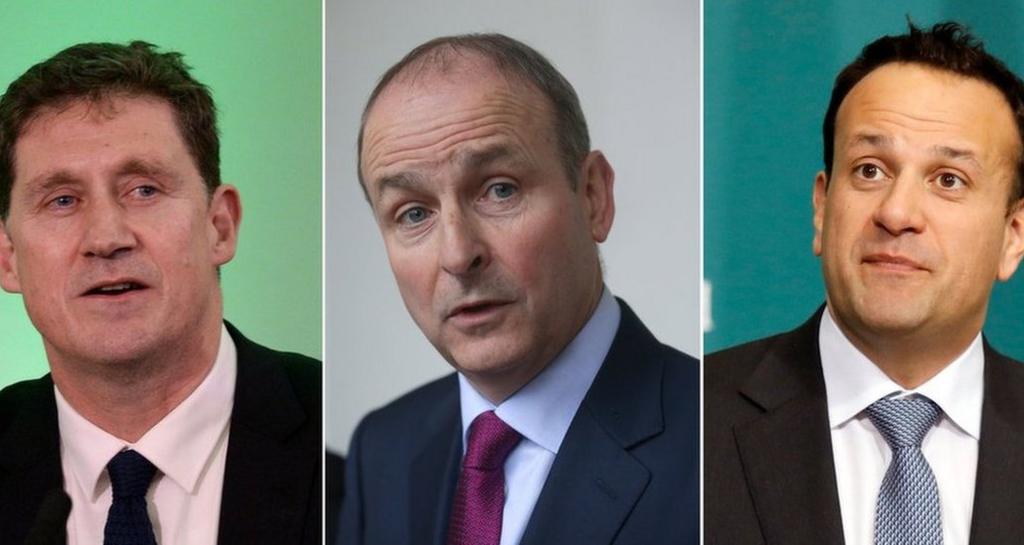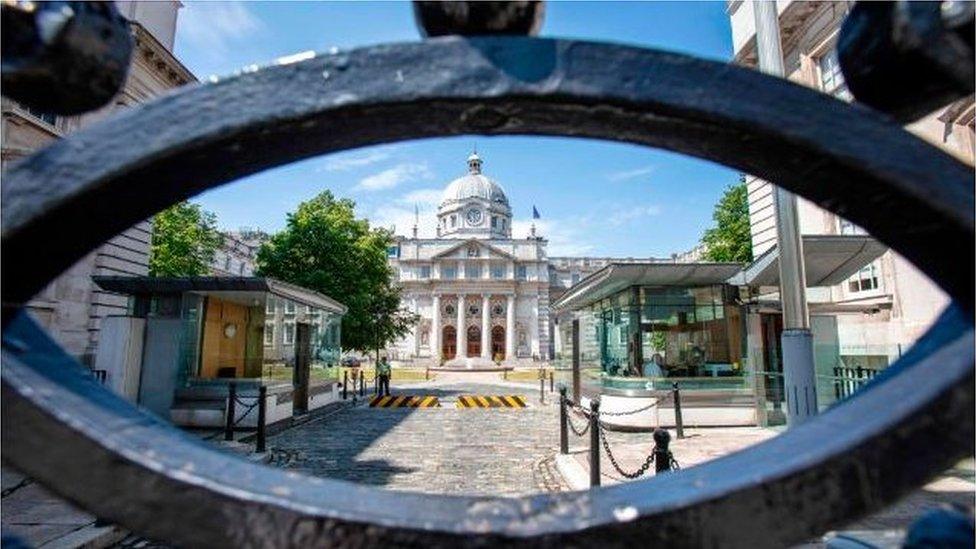Irish government: Parties agree to form coalition government
- Published

Green Party leader Eamon Ryan, Fianna Fáil leader Micheál Martin and Fine Gael leader Leo Varadkar published a coalition plan on 15 June
Fine Gael, Fianna Fáil and the Green Party have voted to go into government together in the Republic of Ireland.
The new government will be formed on Saturday after the parties voted resoundingly to enter a coalition.
Fianna Fáil leader Mícheál Martin, who is now expected to be elected taoiseach (Irish prime minister), described it as a "moment of opportunity and hope".
Voters went to the polls in a general election in February but no party received a majority.
The two larger parties needed the support of the Greens to have a working majority in the Irish parliament, and coalition talks were halted by the coronavirus pandemic.
The leaders of the three parties and their negotiating teams reached agreement on a coalition deal earlier in June.
Greens' decision crucial
Fianna Fáil's members had been expected to support the draft programme of government, although there was some opposition led by Éamon Ó Cuív, a grandson of the party's founder Eamon De Valera.
Fianna Fáil and Fine Gael have their origins in the Irish Civil War almost 100 years ago and have never been in coalition together.
Mr Martin said the agreement was "overwhelmingly endorsed" by his party with 74% support and he described it as an "important day".
Of the total valid poll of 11,058 Fianna Fáil members, 8,194 voted in favour.
Fine Gael said 674 members cast their vote on Friday - a turnout of 95%, with 80% voting in favour.
Fine Gael leader Leo Varadkar said the most important thing was for the new government "to get down to work and get busy".

Leo Varadkar has been caretaker taoiseach (Irish PM) in the Dáil since February
Last to report its result was the Green Party, whose members backed the deal by 76%.
The party, which has just under 2,000 members, required a two-thirds majority to back the draft programme.
Leader Eamon Ryan said his party would work with its coalition partners in "getting our country out of a really severe economic crisis".
A majority of its 195 Northern Ireland members who registered to vote are believed to have opposed the deal.
Claire Bailey, leader of the Green Party in Northern Ireland, said she rejected the deal as it did not "fulfil the Green Party's commitment to social justice", however, she accepted "the democratic decision of the membership".
The counting was carried out in three separate venues.
Now that the deal has been backed, the Fianna Fáil leader is expected to be elected taoiseach around lunchtime on Saturday.
He will then be due to hand the job over to Mr Varadkar, the current caretaker taoiseach, in two-and-a-half years time.
The Dáil (Irish parliament) vote will not take place in Leinster House, where it usually sits, because of Covid-19 and social distancing.
Instead, the vote will take place in the National Convention Centre, which has more space and will allow all 160 TDs (MPs) to gather.